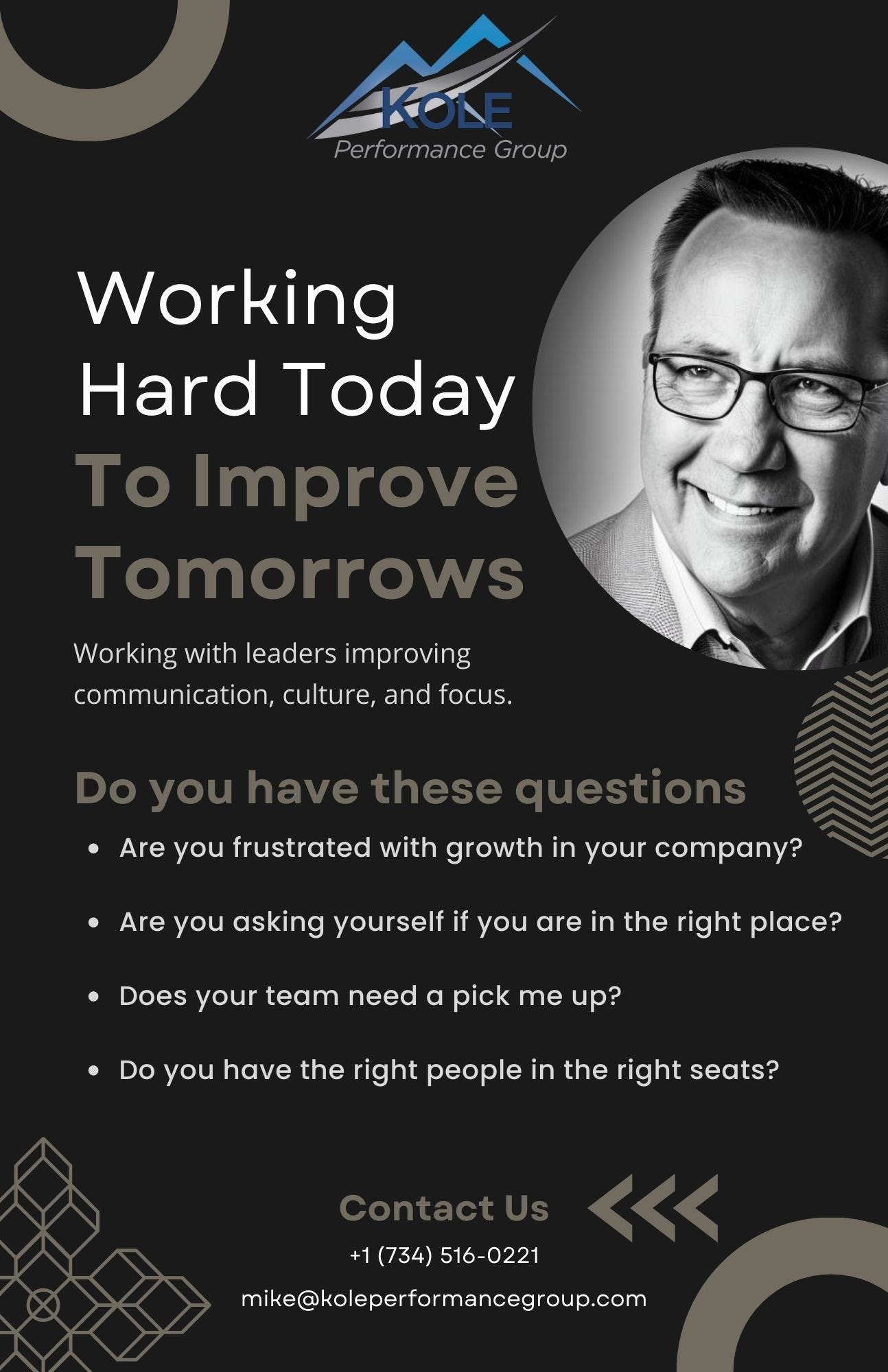#317: Does my a$$ look big in this suit?
Why is it the questions we most need answers to, often go unasked?
We have all heard versions of this joke.
Husband says, “Does my butt look fat in this suit” and wife responds, “Stop blaming the suit.”
As a leader, the wife in this joke is your leadership team. We need that level of honesty from them. And more importantly, the leader needs to be open to that honesty. In sales training and law school (same thing, but one is much less expensive than the other), we are taught never to ask a question you don’t know the answer to. On the other hand, great leaders ask good questions and are open to receiving any response.
We all know why we don’t ask questions. Who wants to hear they look fat in a suit? But when we get to the point of obesity, we tend to look at others and ask them why they didn’t tell us earlier. If you just had heard that it looked like you gained a few pounds, you might have done something about it.
What is your team not telling you that you need to know? More importantly, why aren’t they telling you? Leaders, this is a tough pill to swallow; if they aren’t telling you, you are the problem. Unfortunately, the company's culture may be overly optimistic or fear retribution when giving bad news. Worse than this, if given the information, they feel you won’t act upon it, deflect it, or blame the messenger.
We have written a lot about building trust in the organization. As we noted last week, trust is like change in a leader’s pocket. Each time you make good decisions, you earn more change. When you make poor decisions, change comes out of your pocket.
I want to add another clarification to this; when you don’t make any decision, you may be emptying your pockets.
We often avoid difficult areas of discussion. I like to refer to them as blind spots. A blind spot can be defined as an area where you lack awareness of your weaknesses. And that becomes a problem. So how do you find your blind spot if you are unaware of it? That’s easy. It is the first difficult question you must ask. Who you ask is also simple, they are your trusted advisors or inner circle. If you haven’t developed a solid group that complements your qualities and has no fear of being honest with you, then start there.
Who do you call and ask, what am I missing?
Those are the people you need to help you identify your blind spots. This group has your respect and can motivate you to change your direction or take a specific action.
If you think you don’t have blind spots, that is your first indication that you do. We all have them, whether we are too loyal or not loyal enough. Not only do you need to connect with yourself, but you need to hear what others think about you.
Here are some questions to reflect on:
Rate yourself 1-10 on the following character traits
Commitment
Honesty
Loyalty
Perseverance
Preparedness
Respect for others
Responsibility
Accountability
Self-discipline
How would you describe your personality
What is your greatest character strength
What is your greatest character weakness
What is your greatest single asset
What is your most significant deficit
How well do I relate to others (Scale 1-10)
How well do I communicate to others (Scale 1-10)
How likable am I (Scale 1-10)
After completing your reflection, hand these questions to three or more trusted advisors and have them answer them. Of course, if you can do so anonymously, that is even better. Where are your gaps? What do you do to correct them?
It would be best to acknowledge them to everyone on your team to correct them. Then, you make promises to fix them and ask them to hold you accountable.
What are you avoiding today?
If you want to fix something immediately, ask yourself one simple question; what have you heard from your team repeatedly where you have not made a course correction? For example, maybe you have heard rumblings from your team that your blind loyalty to a colleague hurts the company. So you make idle promises that you won’t let it happen again, and it does. Or you have made excuses out loud and under your breath that they don’t know this person like you do to justify your opinion.
A leader appears deceitful by saying or agreeing to one thing but doing another without explanation and sows distrust quickly. The deceptive “pocket veto” also falls into this category: agreeing to take action but subsequently doing nothing. It only takes one clear instance of this type of deceit to break trust.
This example is why you become obese and look terrible in that suit. Over time, every team member has come to you with the same accusation, and nothing has happened. This begins the slippery slope of losing trust. You are spending that change in your pocket, and inevitably, you run out.
When the team has stopped bringing issues to your attention, you only find out how bad the situation is at the end of the reporting period. If that’s the case, do you go out shopping for a new wardrobe? Or do you finally work on the issue at hand?
How many new suits have you purchased? How many of your management team have moved on elsewhere because you have neglected to listen and respond accordingly?
Self-reflection is hard work today but it will lead to a better tomorrow. So if you are looking for a genuinely objective voice, this is where the Kole Performance Group can help. Schedule a free 30-minute consultation to see how we can be of service.





